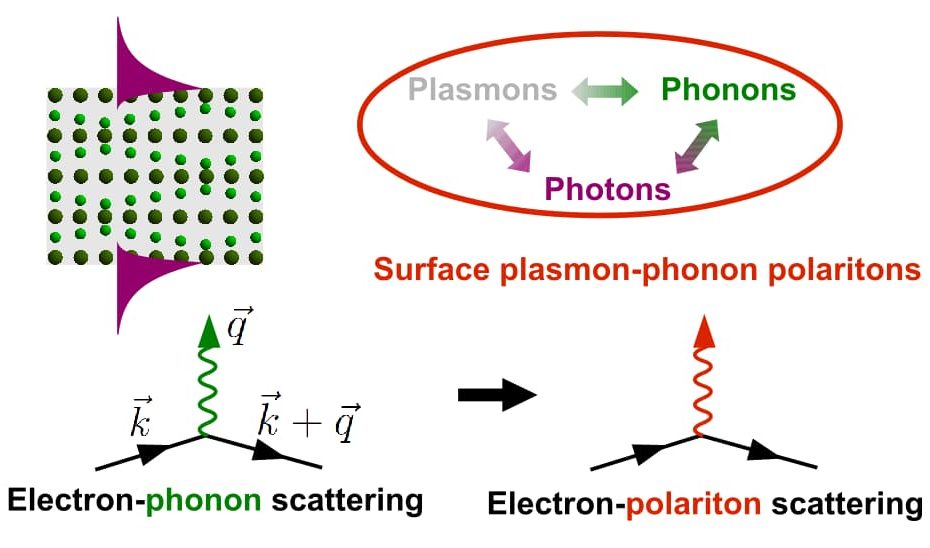The paper “Enhancement of the Electron–Phonon Scattering Induced by Intrinsic Surface Plasmon–Phonon Polaritons” by David Hagenmüller, Johannes Schachenmayer, Cyriaque Genet, Thomas W. Ebbesen, and Guido Pupillo, is now published in ACS Photonics (click here to access the full text).
We investigate light–matter coupling in metallic crystals where plasmons coexist with phonons exhibiting large oscillator strength. We demonstrate theoretically that this coexistence can lead to strong light–matter interactions without external resonators. When the frequencies of plasmons and phonons are comparable, hybridization of these collective matter modes occurs in the crystal. We show that the coupling of these modes to photonic degrees of freedom gives rise to intrinsic surface plasmon–phonon polaritons, which offer the unique possibility to control the phonon properties by tuning the electron density and the crystal thickness. In particular, dressed phonons with reduced frequency and large wave vectors arise in the case of quasi-2D crystals, which could lead to large enhancements of the electron–phonon scattering in the vibrational ultrastrong coupling regime. This suggests that photons can play a key role in determining the quantum properties of certain materials. A nonperturbative self-consistent Hamiltonian method is presented that is valid for arbitrarily large coupling strengths.
